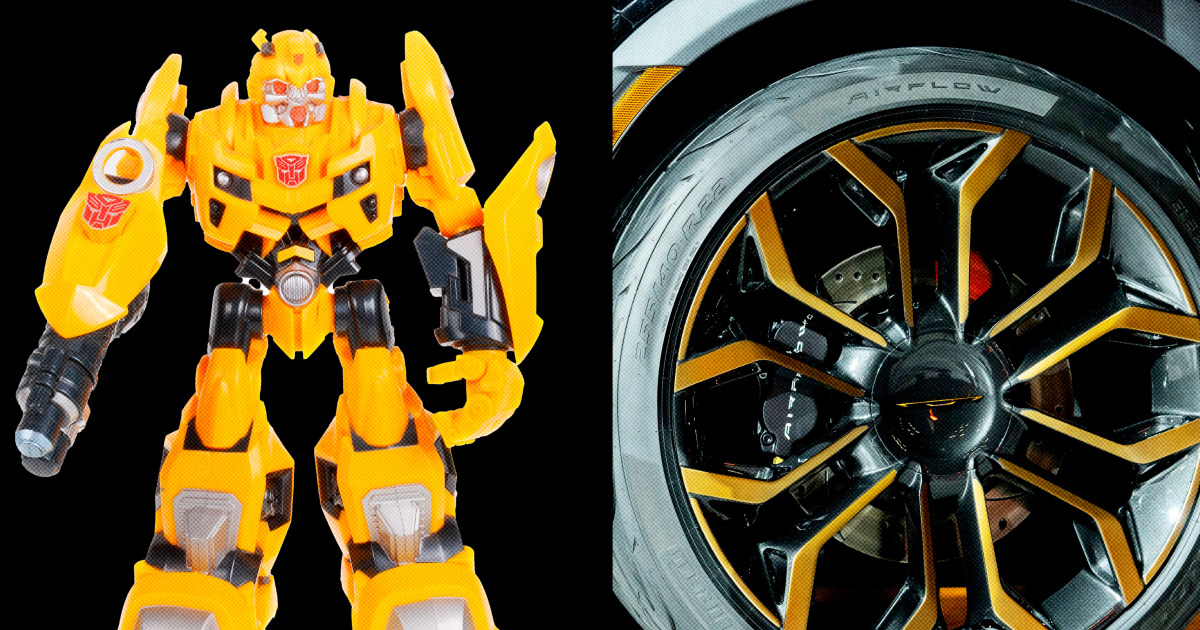The numbers are in: Big toy and auto companies are reporting just how much tariffs are costing them.
Toymaker Hasbro said in its quarterly earnings call Wednesday that it recorded a $1 billion hit for consumer products just in the second quarter as a result of tariff impacts and its long-term outlook. Though the company is projecting growth overall in 2025 with games performing well, it’s expecting consumer products revenue to drop 5%-8% this year because of the import taxes. It anticipates tariffs will make a $60 million dent this year.
To mitigate the tariff impacts, Hasbro is working to reduce the U.S. toys and games it gets from China from around 50% now to less than 40% by 2027. And it’s planning to bring more production to the United States — something President Donald Trump has pushed companies to do.
Meanwhile, its competitor Mattel anticipates tariffs could make a dent this year of up to $100 million. The company said it has adjusted pricing — but didn’t specify what the price increases were, which products were affected or when the changes took effect.
“It is the price that is necessary to offset some of the headwinds in addition to the array of a multitude of other actions that we’re taking,” Mattel Chief Financial Officer Paul Ruh said.
The company says it’s working to broaden its supply chain faster and improve on its product sourcing to help mitigate tariff impacts. It doesn’t expect any more price hikes this year.
And tariffs aren’t just affecting toy companies — they’re also hitting some of the biggest automakers in the world.
General Motors said this week tariffs cost it $1.1 billion in the second quarter. And it’s expecting tariffs overall this year could cost it $4 billion to $5 billion. So far, the automaker that produces Chevys, Cadillacs and other brands has eaten that cost, and it’s trying to offset some of the impact through cost cuts and investments in the U.S.
“Many of the manufacturing announcements that we made earlier in the quarter about onshoring production here into the U.S. with $4 billion of capital initiatives are going to have an effect as we get 18 to 24 months down the road,” GM CFO Paul Jacobson told CNBC.
Stellantis, the maker of Jeep, Chrysler and Dodge, said it expects a $2.7 billion loss in the first half of this year, in part from tariffs.
And Volvo just reported a big decline in its second quarter operating profit. It’s now planning to add its best-selling XC60 SUV to the production line of its South Carolina plant next year.
The auto industry is currently subject to 25% tariffs on imported cars and parts and 50% on steel and aluminum. It’s part of an ever-changing patchwork of tariffs as the Trump administration seeks deals with trading partners around the world ahead of its Aug. 1 tariff deadline. The latest: an agreement with Japan setting tariffs at 15% on Japanese imports, less than the 25% Trump had threatened.
The American Automotive Policy Council, an industry group representing the Detroit Three automakers General Motors, Ford and Stellantis, is worried that the Japan deal could hurt companies making cars across North America. The 15% Japan tariffs are lower than the 25% on Canada and Mexico, where many American car brands manufacture their cars, trucks, vans and SUVs.
“Any deal that charges a lower tariff for Japanese imports with virtually no U.S. content than the tariff imposed on North American built vehicles with high U.S. content is a bad deal for U.S. industry and U.S. auto workers,” Matt Blunt, president of the American Automotive Policy Council, said in a statement.
Commerce Secretary Howard Lutnick pushed back against complaints that U.S. automakers could face higher tariffs than companies making cars fully in Japan.
“That’s just so silly,” he said in a CNBC interview. “The American manufacturers are going to do extremely well in America as long as they build it in America.”
Car companies haven’t really upped prices yet as a result of tariffs, but that may change.
“What the challenge is going to be for the back half of the year is to figure out, will they continue absorbing a majority of the tariff impact or will we start to see that increase in consumer pricing as they start to try to pass along some of the impact,” said Erin Keating, Cox Automotive executive analyst.
Cox Automotive anticipates car prices may rise 4%-8% by the end of the year. It also found that inventory of both new and used cars dropped in July.
And tariffs might mean fewer toys on the shelves this holiday season. Hasbro reports some retailers are pausing or slowing down imports of holiday inventory.
“A lot of hot products are going to likely be out of stock this holiday because we’re just not going to be able to replenish them because we didn’t have the upfront inventory for them,” Hasbro CEO Chris Cocks said. “So like a Play-Doh Barbie, a Nano-Mals, a Baby Evie. If you’re a mom or a dad, you’re probably going to want to go and buy that early.”
